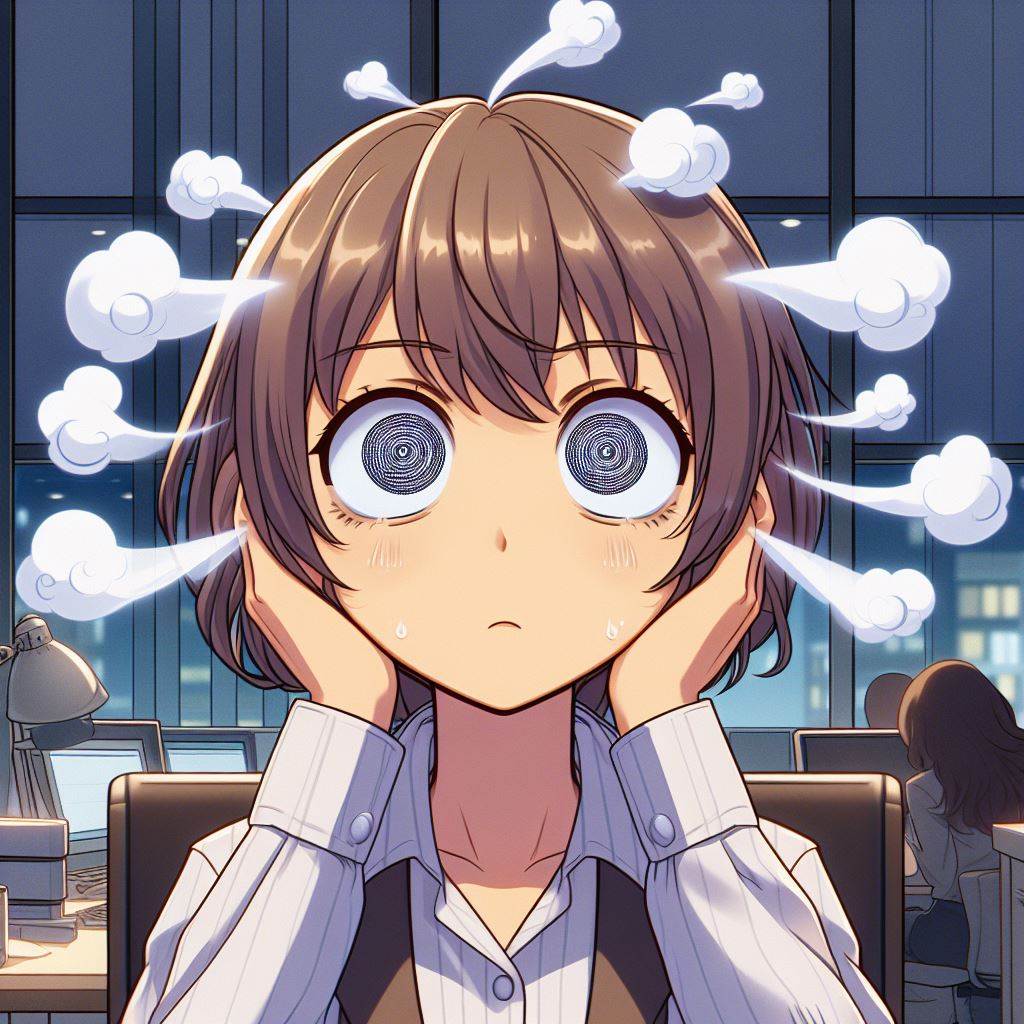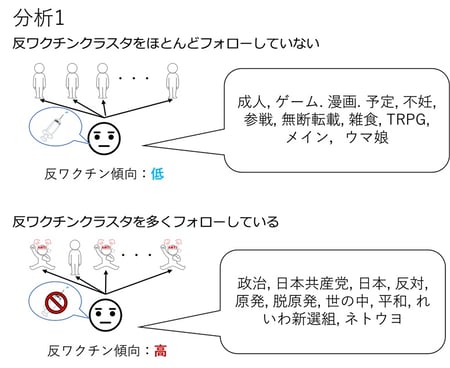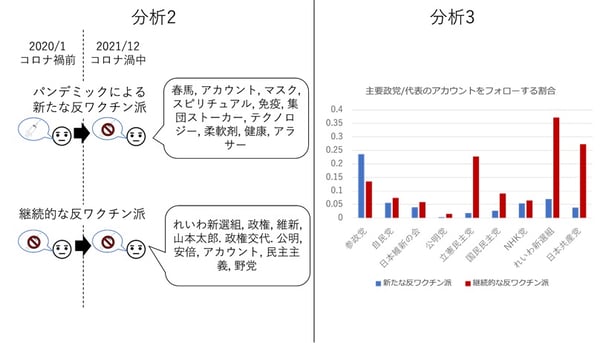インターネットでは頻繁に耳を疑うような言説が流れることがあります。
「ウンコは90cm以上出ないと便秘」
「時速40km以上で動くと老化が進む」
「ビルゲイツが人口を削減しようとしている」
「天然の食塩ならいくら摂取してもよい」
これらの言説が明らかにおかしいことは少し考えればわかりますが、中にはそうでない人も(少なくない数)存在するようです。

えぇっ!!?
こんなアホらしいこと信じちゃうの???

あぁ。
世界は本当に広いな。
これらの言説の言説を支持してしまう人が存在することも信じ難いのですが、一体なぜ 彼らはこのような言説を信じてしまうのでしょうか。
そして笑っちゃうのですが、そんなトンデモサイエンス・陰謀論の類を発信している人はなぜか堂々としていて、自分は間違えていないという確固たる自信みたいなものを持っています。
フラットアース 5 / 月と星の距離 2
— TOYO (@toyo1126Q17) February 3, 2024
眼球の仕組み
この風景では、雲が目の前にあります。
実際には、左下の図のように雲は同じ高さにあり、木に接してはいません。
しかし、眼球の仕組みにより、写真のように雲が木のところまで落ちてきているように見えるのです。… pic.twitter.com/EtfaRa6qNE
そんなとんでもない人たちなのですが、ではなぜ彼らはこのようなトンデモを信じてしまうに至ったのでしょうか。
そこで今回は、擬似科学 陰謀論を信じてしまう人の科学… と題しまして、陰謀論がどのように受け入れられていくのか考えます。
なぜこのような記事を執筆するに至ったか?

陰謀論を信じる人が社会の中に少なくない割合で溶け込んでいることは、なんとなくご存じの方も多いのではないでしょうか。
彼らがトンデモ擬似科学や陰謀論を信じていたところで、我々にはなんの関係もない… と考えたいところですが、実際には少し違うようです。

ん? 変わった人がいるなぁ ってだけじゃないの?

そんな単純な話ではない。
実際に彼らが社会問題になるケースも出てきている。
2020年にアメリカの連邦議会を襲った大量の陰謀論者たちは、記憶に新しいかもしれません。
彼らはドナルド・トランプ前米大統領をあがめる根拠のない陰謀論「Qアノン」の信奉者で、2020年米大統領選でジョー・バイデン氏が勝ったという選挙結果の認定を阻止するため、多くのトランプ支持者と共に連邦議会を襲撃しました。
Qアノンの信仰者は
「政財界とマスコミにエリートとして巣くう、悪魔崇拝の小児性加害者たちに対して、トランプ大統領が秘密の戦争を繰り広げている」
という陰謀論を掲げています。
このように、陰謀論者を「変わった人」「面白い人」と捉えるのでは済まされない事態も発生しているのです。

この記事で紹介する内容は、決して陰謀論者をバカにすることを意図していません。
この記事で紹介したいことは、どのような特徴が 人を陰謀論に惹きつけるかを知ってもらうことです。
そして、身近な人(あるいは自分)がそっちの世界に行きそうになったとき、踏みとどまるキッカケになればいいなと思っています。
また、陰謀論で主張されていることに反論するつもりもこの記事ではありません。
僕も陰謀論大好きです。フリーメイソンだのロスチャイルド一家だの、面白いなと思いながら傍観しているだけの立場であって その内容の真偽はどうだっていいと思っています。
そもそもなぜ人は陰謀論を信じてしまうか?

既に述べたように、陰謀論を信じている人が少なくない割合存在しそうである ということですから 陰謀論を信じることに何かしらのメリットがあるのかもしれません。
まずは陰謀論を信じるとどんなメリットがあるのか考えてみましょう。

えぇ!!?
メリットなんてあるの?

あぁ。
メリットがないと人は信じないだろう。
さまざまな研究で陰謀論を信じることの心理学的メリットが提案されていますが、それらを統合した結果以下のように説明されます。
2022年の論文を紹介します。陰謀論はそれを信じている人にとって、世界観に意味とやりがいを植え付ける心理学的利点があると研究者は主張しています。
What is the appeal of conspiracy theories? In this contribution, I propose that conspiracy theories have psychological benefits by imbuing perceiver’s worldview with meaning and purpose in a rewarding manner.
Psychological benefits of believing conspiracy theories
陰謀論は
(a)自分自身や自分たちの集団が重要であると認識することで脆弱な自我を守ることができ
(b)自分の信念や行動を正当なものとして合理化することができ
(c)刺激的な物語の中で謎を解き明かす機会を通じて楽しませてくれるような、別の現実を可能にする
ことが判明しています。
しかし、これらは短期的な利益であり、陰謀論が人々に即効性のある満足感を与えることを示唆しています。
脆弱な自我を持った個人がそれを守り、即効性のある満足感を得られるなら 惹きつけられてしまう人も多いでしょう。

実際私も
「日本人とユダヤ人は共通の祖先を持っている!!」
的な言説が大好物だ。

お、おぅ。。、
即効性のある快楽は間違いなく人を惹きつけます。その結果、多くの人が集まり 互いに情報交換(笑)をしあってより先鋭化してしまうのではないでしょうか。

特に恐ろしいのは、SNSのレコメンド機能でしょう。
レコメンド機能とは、サービス側がユーザーの興味ありそうな話題を提案してくれる仕組みです。
一度特定の話題を検索すると、タイムラインは同じような話題で埋まってしまうようになります。
そして、一度陰謀論について調べ、発信してしまうと 同じような投稿がどんどんどんどん表示され、さも自分の主張は正しいかのような錯覚を覚えてしまうのです。
このような特定の関心ごとで集まったSNS上の集まりをフィルターバブルということもあります。
一度フィルターバブルに閉じ込められると、次から次へと似たような主張が画面一杯になり 自分の投稿も拡散されやすくなるでしょうから 益々深みにハマってしまうのです。

どこかで解説するが、マジでSNSの怖さはちゃんと理解したほうがいいと思う。
自戒も込めて、だがな。

確かに、、
一度ハマったら抜け出せる気がしないかも
一方で、即効性のある快楽は他にも存在します。陰謀論者がそれらの快楽ではなく、陰謀論から満足感を得ているとしたら 何か他の理由があるのかもしれません。
そこでここからは、どのような特徴を持っている人が陰謀論を信じやすいか考えてみます。
陰謀論を信仰しやすい人の特徴

これまで陰謀論の知られざるメリットについて紹介してきました。短期的な満足感を得ることに寄与する陰謀論は確かに人々の中に浸透しやすい気もしますが、一方でそれ以外のものから満足感を得ている人の方が多いはずです。

確かに。
陰謀論を信仰する ってことはそれなりの理由がありそうだな。

そうだ。
ここからは陰謀論を信仰する人がどのような特徴を持っているかについて考察していこう。
では、陰謀論を信仰する人にはどのような特徴があるのでしょうか。
いくつかの学術研究が、そのペルソナ像を浮かび上がらせてきました。
陰謀論信仰者の特徴① : 陰謀論信仰と熟慮的な思考には関連がない
度々挙げられる言説として
「陰謀論者は熟慮を重ねた結果陰謀論に到達したのでは?」
というものがあります。
客観的な研究は、そのような主張を否定します。
2023年の研究を紹介します。熟慮的思考は陰謀論を信仰することと関連しないことが示されました。
熟慮的思考と様々な個人要因との交互作用はほとんど有意ではなかった。これらの結果は,熟慮的思考が陰謀論信念を促進する個人要因の効果をさらに増幅させることはほとんどないことを示唆しており,熟慮的思考を養うことは陰謀論信念を減少させる上で効果的な対策であることを示している
陰謀論信念に影響を与える個人要因に対する熟慮的思考の調整機能の検討
この研究は、熟慮的思考をする人が熟慮を重ねた結果陰謀論にハマるのでは?という仮説を検証するために行われました。
論文では、陰謀論にハマりやすい人の特徴も指摘されており
- 科学的思考が弱い:合理的思考をしないタイプの人。
- 閉鎖志向型:新しい知識に対してオープンではない。
- 社会的無力感:社会システムや政治に対して自己の無力感を強く感じる。
- 特性不安:不安になりやすい性格的傾向がある。
- 孤独感と社会的協調性の低さ:社会階層が低く、収入が少なく、他人との協調性が低い。
といった特徴が陰謀論進行と関連していると指摘しています。
このように、熟慮を重ねられる人が陰謀論を信仰しているかどうかはあまり関係ないことが示されました。

この研究で指摘されている特徴、どれをとっても絶望が深まるな。

なんか、納得って感じ。
更に他の研究では、陰謀論にハマる人の特徴を次のように述べています。
陰謀論信仰者の特徴② : 陰謀論を進行する人は分析的思考に問題があり 不安や統合失調症に関連した性格特性を持っている
熟慮的思考は陰謀論の信仰と関係ないことが示された一方、どのような思考が陰謀論進行を促進するのでしょうか。
2014年の研究を紹介します。陰謀論を信仰する人は分析的思考や開放的思考が弱い一方直感的思考が強いことが判明しました。
In Study 1, we examined associations between belief in conspiracy theories and a range of measures of thinking dispositions in a British sample (N = 990). Results indicated that a stronger belief in conspiracy theories was significantly associated with lower analytic thinking and open-mindedness and greater intuitive thinking.
Analytic thinking reduces belief in conspiracy theories
この研究は990人のイギリス人サンプルを使って調査されました。

分析的思考の能力は、変なものに騙されないかどうかを決定するようだ。
このように、思考のパターンが陰謀論に導いてしまうことも多々あるようです。
更に性格特性(ビッグファイブ)と陰謀論の関係を示した研究を紹介します。
2022年の研究を紹介します。陰謀論を信仰する人は統合失調症に関連する神経症的傾向が確認されました。
These findings were corroborated by an additional analysis using Latent Semantic Analysis (LSA). LSA demonstrated that the items measuring schizotypal and related symptoms are cognitively related to both our measures of CTs.
Dispositional and ideological factor correlate of conspiracy thinking and beliefs
研究では397人の被験者を対象に、性格テスト(ビッグファイブ)と陰謀論の信仰を関連づけることで調べられました。
ビッグファイブテストとは、心理学の世界でも信頼された性格の分類方法です。
性格を5つに分類することで性格の特徴を数値化し分析することを可能にします。
更に人が反ワクチンになるまでの過程を追った研究では、反ワクチンと陰謀論の関係について紹介しています。
陰謀論信仰者の特徴③ : 新型コロナウイルス以降に反ワクチン化した人は陰謀論やスピリチュアルに関心があり 参政党を支持する傾向がある

2020年に発生した新型コロナウィルスは記憶に新しいと思いますが、それによって様々な人が反ワクチンとして暴れ回りました。
なんとなく反ワクチンと陰謀論者の距離は近そうですが、実際どうなのでしょうか。

え?そんなのわかるの?

あぁ、なんと日本の大学が研究結果を発表した。
どうやら、コロナ前から反ワクチンだった人は 既存の政党に関心があり「山本太郎」「れいわ新撰組」「アベ」などという単語と関連があった一方、コロナ後に反ワクチンになった人は既存の政治には興味がなく 陰謀論や三浦春馬 免疫等の単語と関連があるようです。
2024年 東京大学(University of Tokyo)が発表した研究を紹介します。コロナ禍以前からワクチン反対派であった人々は政治への関心が高くリベラル政党とのつながりが強いのに対して、コロナ禍で初めてワクチン反対派になった人々は政治への関心は薄い一方で、陰謀論やスピリチュアリティ、自然派食品や代替医療への関心が強く、これらのトピックへの関心がワクチン反対派になるきっかけとなっていることを示した。
This study, using Japanese Twitter data, revealed that (a) anti-vaxxers are characterized by high political interest,
(b) persistent anti-vaxxers were more ideologically left-leaning and had stronger ties to existing political parties, and (c) pandemic-induced new anti-vaxxers displayed low political engagement but a greater affinity for conspiracy theories, spirituality, naturalism, and alternative health practices, which served as gateways to anti-vaccination views.
Anti-vaccine rabbit hole leads to political representation: the case of Twitter in Japan
さらに、新規にワクチン反対派になった人々は既存政党との結びつきが弱い一方、反ワクチンを掲げた参政党との結びつきを急速に強め、このことが2022年参院選における参政党の議席獲得につながった可能性についても明らかにした。
Furthermore, those who turned anti-vaccine after the pandemic also exhibited an increased tendency to follow the newly emerged anti-vaccine party, potentially contributing to their political representation at the national level.
Anti-vaccine rabbit hole leads to political representation: the case of Twitter in Japan
研究では2021年1月~12月までに収集された「ワクチン」を含むツイート1億件を収集し機械学習を用いて解析されました。
このように、確かに陰謀論と反ワクチンの距離は近いことが研究でも明らかになっています。

反ワクチンの人に関連するテキスト、どれをとってもヤバそうな匂いがぷんぷんするな。

うわぁ。
陰謀論に傾倒してしまう人は分析的思考に問題があり、熟慮的思考は関連しないことを説明しました。では、彼らの認知能力はどうなのでしょうか。
陰謀論信者の特徴④ : 陰謀論信者は認知テストのスコアが低い

陰謀論と認知機能に関する研究はたくさん存在します。今回はその中でも比較的新しいものを紹介しようと思います。
2023年の研究を紹介します。陰謀路やフェイクニュースを信じる人は、認知テストのスコアが低いばかりか解答時間も長いことが示されました。
Our results show that endorsers performed worse than non-endorsers on the CRT, but they took significantly longer to answer the questions and did not make proportionally more intuitive mistakes. Endorsers therefore appear to process information effortfully but nonetheless score lower on the CRT.
Thinking false and slow: Implausible beliefs and the Cognitive Reflection Test
過去の研究でも陰謀論の支持者は認知テストの結果が悪いことが確認されていますが、彼らが陰謀論を信じてしまうのは「努力して情報を処理しないからでは?」という疑問から本研究が実施されました。
研究では664人の被験者を対象にありえない主張を支持する者と支持しない者のCRTの成績(総得点、直観的な回答の不正解の数と割合、完了時間)を比較することで調べられました。

この研究結果は少し絶望を深めるな。
このように陰謀論を信じてしまう人は「努力して情報を処理しないから、こんなものを信じちゃうんじゃないの?」と思われていましたが、実際はゆっくり考えているのかもしれません。
研究の結果から分かるように、ゆっくり考えてしかも間違った答えを導き出す という昆虫レベルの知能の持ち主なのです。
更に、そんな彼らの知識レベルがどの程度なのかを調べた直接的な研究を紹介しましょう。
陰謀論信者の特徴⑤ : 陰謀論信者は知能が低く 義務教育レベルの理科も理解できていない

これまで陰謀論者は
- 不安障害 統合失調症
- 認知テストのスコアが低い
- スピリチュアルや自然派食品に関心がある
等々、さまざまな「こいつヤベェ…」があることを説明してきました。
更に陰謀論に関心のある人の知性がどの程度なのかを調べた直接的な研究を紹介します。

流石に性格悪すぎるだろ…

陰謀論を支持する人が社会で一定のインパクトを放つことがあるんだから、そりゃあ彼らの正体を知っておくことは有意義なはずだ。
2022年の研究を紹介します。科学的コンセンサスが得られている知見に反対している人は、そうでない人と比較して客観的知識レベルは最も低いが、主観的知識レベルは最も高いことが示された。
Across seven critical issues that enjoy substantial scientific consensus, as well as attitudes toward COVID-19 vaccines and mitigation measures like mask wearing and social distancing, results indicate that those with the highest levels of opposition have the lowest levels of objective knowledge but the highest levels of subjective knowledge.
https://www.science.org/doi/10.1126/sciadv.abo0038
研究チームはアメリカに在住の成人3249人の被験者に
- 科学的コンセンサスが得られている7つの重要な問題
- COVID-19ワクチン・マスク着用・社会的距離の取り方のような緩和策
に対する態度を調べて評価しました。
実験①
参加者たちに、以下の7つの科学的コンセンサスが得られているテーマのうち1つをランダムに割り当て、そのテーマに対する科学的コンセンサスを支持するか、反対するかを尋ねました。
- 気候変動
- 遺伝子組み換え食品
- 原子力発電
- ワクチン接種
- 進化
- ビッグバン
- ホメオパシー医学
更にそのテーマについて、「なんとなく理解している」から「完全に理解している」まで7段階で評価してもらいました。
実験②
参加者たちの科学知識を評価するために、ランダムな順番で出題される34問のテストを実施しました。
彼らは、「地球の中心は高温である」「すべての昆虫は8本足である」「電子は原子よりも小さい」「窒素は地球の大気の大部分を構成している」「太陽系でヘリウムが採取できるのは地球だけである」などの問題に、「真」か「偽」で回答しました。
結果
与えられた科学的コンセンサスが得られているテーマに反対する人ほど、そのテーマについて「完全に理解している」と主張する傾向があると判明しました。

しかし、それら科学的コンセンサスに反対する人ほど、科学知識のテストでは点数が悪くなる傾向にありました。

陰謀論は面白い!(でも、間に受けちゃダメよ)

これまで陰謀論を信仰するひとは
- 熟慮的思考は関係ない
- 分析的思考に難がある
- 神経症的傾向が高い(特に統合失調症との関連がありそう)
- 反ワクチンになりやすい
- 認知機能に問題がある
といった特徴がある と述べてきました。

ガチで陰謀論にのめり込んじゃうのは、ちょっと立ち止まった方がいいかもしれんな。。、
個人的には陰謀論は面白いと思っているので、嗜む程度にとどめておきましょう とだけアドバイスをしてこの記事を終わろうと思います。







コメント